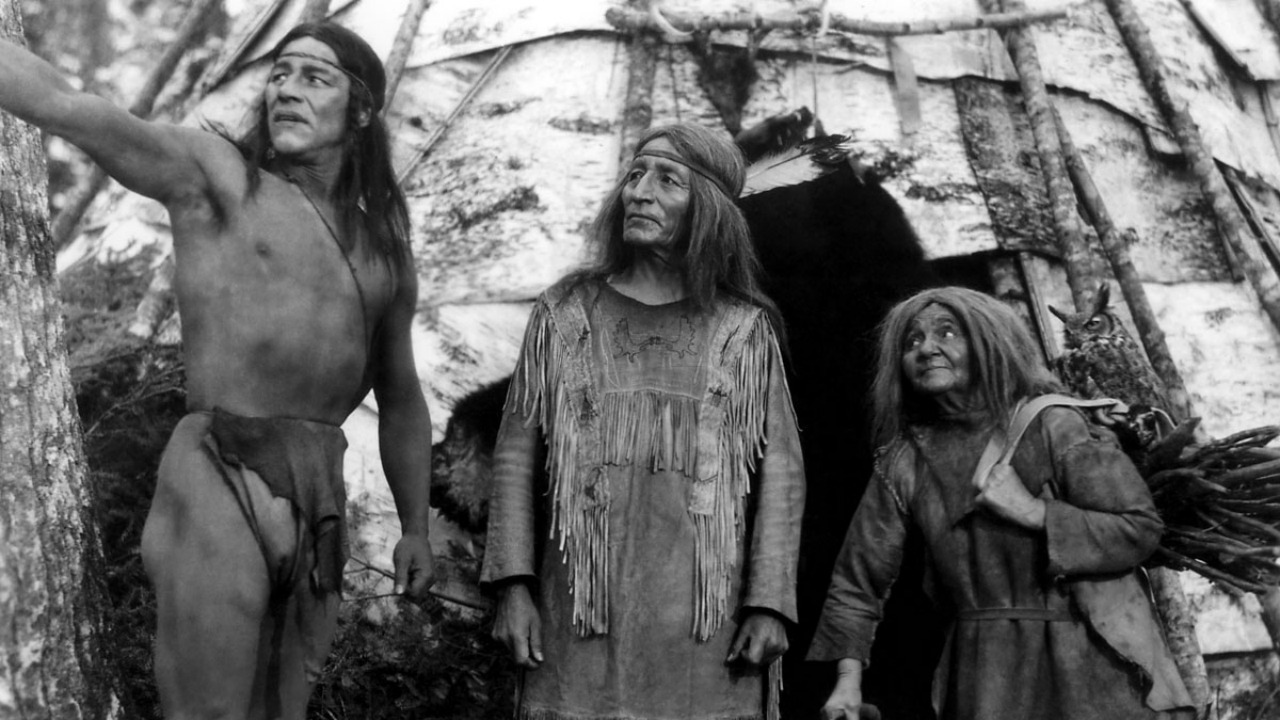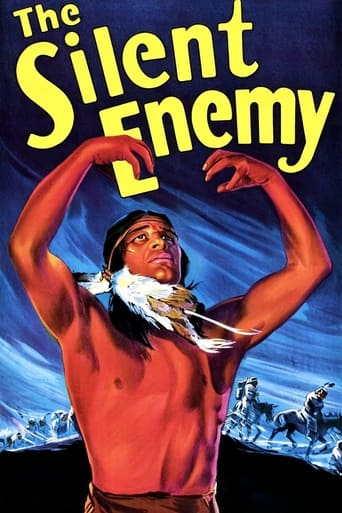

That was an excellent one.
... View MoreThanks for the memories!
... View Morebrilliant actors, brilliant editing
... View MoreA bit overrated, but still an amazing film
... View MoreThe makers of this dramatized documentary about the Ojibway Indians following in the footsteps of 'Nanook of the North' returned after a year in Northern Ontario with 25,000 feet of silent footage shot by the veteran Hollywood cameraman Marcel Le Picard which it had then taken another year to cut and assemble, by which time the silent film had long since become a thing of the past. Before Paramount could release it, 'The Silent Enemy' was therefore transformed into a part-talkie through the addition of a short opening speech to camera by Chief Yellow Robe, who had played Chetoga in the film, along with a synchronised organ score.As usual the villain of the piece is the witch doctor, and as previous reviewers have commented some of the scenes had to have been staged for the makers to have been able to have had their cameras in the right place at the right time; and some of the wildlife is extremely roughly treated (including a couple of extremely cute bear cubs that the hero has just orphaned) in a way that would draw screams today from the American Humane Association.The title by the way refers to hunger.
... View MoreI was greatly impressed by the film's cinematography and direction, especially so under what must have been intensely difficult location shooting conditions. Beautiful scenes of migrating caribou, wolves running at top speed through the snowy forest, bears, and even a wolverine, elevate the diverse wildlife species represented in "The Silent Enemy" to par with the human actors. This Paramount production has an immediacy and a crisp air of authenticity rarely seen in films of the era.The story line and acting are a different story, and together serve nearly to destroy the viewing experience. Anyone familiar with American Indian history and culture will wince at the one-dimensional stereotypes that almost uniformly obscure any chance of "The Silent Enemy's" helping to inform and enlighten the mass culture and broader audience that Paramount was able to reach. Sadly, the studio took the easy way out, playing to prejudice and racist attitudes of white audiences toward Indians. Some scenes of animal abuse may shock sensitive viewers. Those glaring faux pas aside, though, this film is not to be missed. Few other titles come to mind that convey the drama and energy of wild nature as this does. The score is well done, and the visuals are full of life.
... View MoreDocudrama about a tribe of Indians in the Canadian wilderness over the course of a year. The print I saw opened with chief of the tribe addressing the audience before the film itself started. The film proper is full of truly spectacular footage of the native North American's going through their paces from fishing to hunting to traveling in the snow or going down the river in a canoe. Almost 80 years on one still goes "Oh Wow" with much of the footage. Even while its clear that the footage was staged, its more stages in the way of "this is the way we do things". The only real problem is that some of the stuff that helps move the "story" seems creaky. Actually bits of the movie seem creaky. Most of the film is silent with music and narration which seems to slow the pace down and make much of what happens seem quaint. This doesn't mean its bad, it just makes the film okay and not as great as what's in the footage. Worth a look, as a rental if nothing else, more so if you want to see a life that's pretty much all gone now.
... View MoreOne of a number of fiction films of the 1920's and 1930's that attempt to show the life of primitive peoples before contact with European material culture. The best known example is Nanook of the North (1922).Very well done, with much location shooting under trying circumstances for both the Ojibwe Indian cast and the crew. Interesting wild animal sequences, especially of the caribou.The sound mostly is fine organ playing, with a short spoken introduction by Chief Yellow Robe (who played Chetoga, tribe leader).
... View More